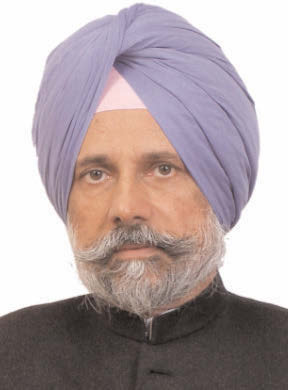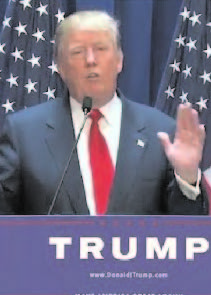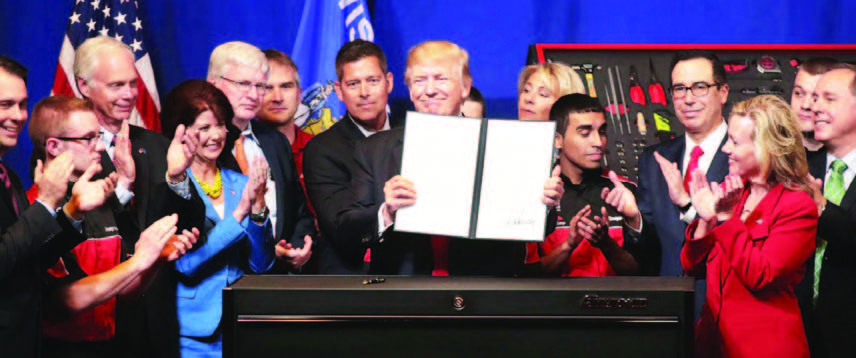
Since November 13, when seven coordinated attacks in Paris causing 130 deaths, reminiscent of the 26/11 carnage in Mumbai in 2008, shook Europe and made the world pause, public opinion in Western Europe and the US has lurched more to the right. The December 2 shooting spree by a couple of Pakistani origin in Bernardino, California, that left 14 dead has raised questions about the role of Islam in the West.
In the US, a paroxysm of anti-Islam sentiment has erupted, reflected in the 24 Republican governors, almost half the total, plus a Democrat, refusing to admit any of the 10,000 Syrian refugees that President Barack Obama announced will be admitted. They refused to take even infant orphans, compelling the President to dub such behavior “potent recruitment tool” for the Islamic State. President Obama, quoting Pope Francis in support, added that the US must “protect people who are vulnerable”, irrespective of their faith.
France reacted to the attack with unforeseen ferocity, with French President Francoise Hollande asserting they will act “without pity”. The unprecedented success thereafter in regional polls of right-wing National Front, combining star power of niece Marion and aunt Marine Le Pen, sweeping six out of 13 regions, had the German Social Democrats declaring it as “wake-up call for democrats in Europe”.
The most politically incorrect statement came from Donald Trump, front runner amongst US presidential Republican candidates. He said if elected, he would shut the door for all Muslim immigrants, pending a proper review. The White House reacted saying this disqualifies Trump from the race.
Against this backdrop, India chose to allow its National Security Adviser meet that of Pakistan in Bangkok on December 6-7, accompanied by the foreign secretaries. Questions were raised by the Indian media and the Opposition how this squared with BJP‘s much-professed red-lines. In reality, both nations readjusted their positions for mutual accommodation. The Indian condition that the Ufa statement only required terror to be discussed first was dropped as the joint statement indicated discussions having covered peace and security, terrorism and Jammu and Kashmir.
Pakistan’s insistence to mainstream its proxy, the Hurriyat, was negated by the dialogue moving overseas. On the positive side, Pakistan has positioned Lt Gen Janjua, recently retired corps commander based in Quetta, overseeing operations in Baluchistan, as their NSA, in lieu of Sartaj Aziz. This opens a line to the Pakistani military, though it could also backfire if an obdurate line is adopted by the nominee, who may not be amenable to urgings from the civilian government.
Literally hours after this meeting, Ms Sushma Swaraj, External Affairs Minister, landed in Pakistan to attend a 14-nation Hearts of Asia conference, pursuant to the Istanbul Process on the regional nations acting in concert to stabilize Afghanistan via confidence-building measures. As is normal, the focus was more on Ms Swaraj’s interaction with Pakistani leaders than the conference. Counting on Pakistani assurances on curbing India-specific terror machinery on Pakistani soil will be risky till concrete change is visible. Afghanistan in this context can be either a bridge for India-Pakistan cooperation or a theatre for lethal contestation.
In an unprecedented move, Anton Blinken, visiting US Deputy Secretary of State, in a press interview in Delhi, revealed that the US had urged Gen Raheel Sharif, Pakistan’s chief of army staff, during his Washington trip to act against Lashkar-e-Taiba and Jaish-e- Mohammed with the same vigor he was showing against the Tehrike Taleban Pakistan. The US planned to hold the general to his promise.
The conclusion from these choreographed events is that much spade work has gone into reviving the India-Pakistan parleys and mutual commitments on each side addressing the other’s core agenda. However, the lesson from observing the flip-flops in the Modi government’s Pakistan policy, with bonhomie suddenly dissipating into public acrimony, is that there may be more turbulence in the future, particularly once electioneering commences for the polls in W Bengal and Assam.
The bigger danger to India is from succumbing to the mindless majoritarianism being witnessed in the US and Europe. The debate in India on tolerance has been dismissed by figures close to the Modi regime as baseless. Also ignored is the reasoning that making any group – religious, ethnic or ideological -insecure causes its alienation and increases the possibility of it resorting to extra-constitutional means. Many Donald Trumps occupy responsible positions in India today, but there is no President Barack Obama to confront their bigotry. Even during his state visit to India in January this year, one of Obama’s last messages to PM Modi was for India to retain its commitment to freedom of faith and expression.
India has, so far correctly, focused on Pakistan-sponsored terror. But today, global jihad emanating from the caliphate of the ISIS is a parallel danger to the entire South Asia. Its initial manifestation is visible in Bangladesh with attacks on foreigners by self-starter groups. As the IS finds itself starved of funds and recruits in its current catchment area, due to migration of population and military pressure by the US and its allies on the one side and Iran and Russia on the other, it may seek to expand to new domains like South Asia.
Thus the BJP must not ignore when its misguided elements stir the communal pot. Punjab has just seen the shadows of old passions swirling at the behest of politicians losing relevance or others seeking to re-emerge from the sidelines where history cast them. Let two examples suffice. The Congress let the Punjabi Suba agitation persist from 1956 to 1966 before finally conceding a linguistic state, obtained by other regions a decade earlier. It was, in fact, PM Lal Bahadur Shastri’s gift to a state that proved more than its loyalty in the 1965 War. But after his demise, a moth-eaten award was handed out, leaving bitterness and alienation that eventually allowed the radicals to seize control of political processes. Secondly, the fate of Kashmiri Pandits shows that majoritarianism crushing a minority’s way of life is not religion specific.Hopefully, PM Modi having imbibed the Bihar lesson will now deliver on his own slogan – Sabka saath, sabka vikaas, not just nationally but regionally.





Be the first to comment